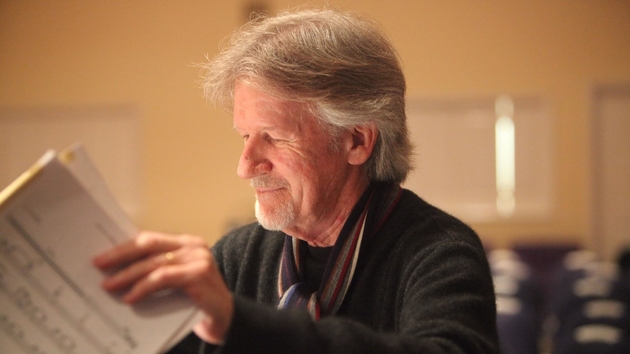
When a jazz duo clicks, when two simpatico musicians share evident delight in each other’s company, the music unfolds in its purest form. Pianist Alan Broadbent, 72, and bassist Harvie S, 70, created this kind of communion Tuesday at Oakland’s Piedmont Piano, rendering a set of succulent standards (and a few equally delectable originals) with the conversational brio of expert raconteurs.
Both players have distinguished duo discographies. The New Zealand-born Broadbent recorded a series of classic albums in the 1970s with the great jazz vocalist Irene Krall, including the exquisite duo encounters Where Is Love? and Gentle Rain (both on Choice). His 1993 album Concord Duo Series, Volume Four with saxophonist Gary Foster, recorded live at Berkeley’s Maybeck Concert Hall, is another exceptional musical pas de deux. In whatever context he plays, Broadbent is one of jazz’s most lyrical improvisers.
S, formerly known as Swartz, has an even more consequent history as a duo interlocutor. He wasn’t the first bassist to join vocal explorer Sheila Jordan in an unprecedented duo (that would be Steve Swallow in the 1960s). But when she returned to the high-wire format in the 1980s, S became her primary partner, recording a series of landmark albums such as 1982’s Old Time Feeling (Muse) and 1989’s Songs From Within (MA Recordings).

He’s been working with Broadbent in recent years, including 2017’s critically hailed Developing Story (Eden River Records) with the London Metropolitan Orchestra, and a stellar new trio session, with drummer Billy Mintz, New York Notes (Savant). But as Broadbent noted after he and S played “Clifford Notes,” his briskly swinging homage to the melodic genius of trumpeter Clifford Brown, “Who needs a drummer? We can generate this pulse by ourselves.”
They opened with a near medley of three standards by Tadd Dameron, moving from a lushly orchestral version of the ballad “On a Misty Night” into a sprint through the bebop anthem “Hothouse” with a brief detour by way of “What Is This Thing Called Love?” (the Cole Porter song from which Dameron borrowed the chord changes for the bebop anthem). With S sitting out, Broadbent rendered Dameron’s “If You Could See Me Now,” using his left hand to build exquisite tension with a counter melody.

The pianist made a point of highlighting the contributerlooked women composers, namechecking Bernice Petkere while caressing her 1932 hit “Lullaby of the Leaves,” a song ushered into the jazz repertoire by the foundational jazz singer Connee Boswell. He took more liberties with pianist Lil Hardin Armstrong’s “Struttin’ With Some Barbecue,” a tune immortalized by her then-husband Louis Armstrong on an epochal 1927 Hot Fives recording. Arranged as a bright bossa nova, the seminal jazz tune felt thousands of miles away from Chicago.
As an accompanist S is one of jazz’s most acute listeners, and as a soloist he’s witty and playful, playing with a buoyant sense of time that puts a bounce into even the most melancholy ballad. And on uptempo bebop, where Broadbent’s precise and even attack brings to mind Lennie Tristano, S finds his own way to keep the eighth notes surprising.
Among the set’s most memorable pieces were Broadbent’s originals written for Charlie Haden’s Quartet West, a band insistently devoted to Raymond Chandler and James M. Cain’s hard-boiled vision of Los Angeles, as filtered through film noir. His piece “The Long Goodbye” (not to be confused with Paul Williams’ titular theme of the same name from the 1973 Robert Altman film) exemplifies the Quartet West aesthetic at its best, rue laced with whiskey and wistful nostalgia.
Broadbent closed the concert with a solo rendition of Duke Ellington’s “Reflections in D,” a piece too rarely performed (but oft heard as the score for a wondrously serene ballet by Alvin Ailey). In Broadbent’s hands the ballad felt like a promise about beauty’s enduring truth.




